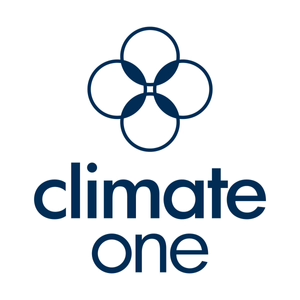
Biodiversity, Natural Wealth, and Resilient Ecosystems
08/20/24 • 52 min
We face a biodiversity crisis around the world, as many countries rush to save their species and habitats. Human interaction and overdevelopment are amongst the major contributors to biodiversity loss, along with climate change.
How can we rethink our traditional development practices in order to better serve our species, our environments and our communities?
In this episode, we hear from biodiversity experts Jose Dengo, Managing Partner at CDG Environmental Advisors, Susan Jackson, Senior Marine Ecologist at Tonkin and Taylor, and Stéphanie Le Bonniec, Project Manager at HPC International.
---------
Guest Quotes
“The tourism industry exists in Costa Rica because of our biodiversity, because of the natural wealth, natural beauty that you see here. It's what makes it a tourism destination, and tourism itself accounts for over 8 percent of GDP and almost 10 percent of all employment.” - Jose Dengo
“In New Zealand, in Aotearoa, we have a customary practice, which is called kaitiakitanga, and it's the concept of guardianship. So we, as individuals and as collectives, can all be custodians, or we can all be kaitiaki for the species that live here in New Zealand or elsewhere, and for the biodiversity that the place where you live supports. And I think everybody has a role to play.” - Susan Jackson
“Everything is linked. That means all the consequences are linked together, like famine, civil wars, desertifications, armed conflict, and diseases. All is linked and if we don't look for the resilience of ecosystems, that will be crazy soon. For the future generations, we need to take care of it.” - Stéphanie Le Bonniec
---------
Time Stamps
0:00 Rethinking golf courses
02:04 Biodiversity in Costa Rica with Joes Dengo
22:30 Biodiversity in New Zealand with Susan Jackson
39:49 Biodiversity in France with Stéphanie Le Bonniec
56:17 Phil’s takeaways and closing remarks
---------
Sponsor copy
Rethinking EHS is brought to you by the Inogen Alliance. Inogen Alliance is a global network of environment, health, safety, sustainability and ESG consulting companies working together to provide one point of contact to guide multinational organizations to meet their global commitments locally. Visit http://www.inogenalliance.com/ to learn more.
---------
Links
We face a biodiversity crisis around the world, as many countries rush to save their species and habitats. Human interaction and overdevelopment are amongst the major contributors to biodiversity loss, along with climate change.
How can we rethink our traditional development practices in order to better serve our species, our environments and our communities?
In this episode, we hear from biodiversity experts Jose Dengo, Managing Partner at CDG Environmental Advisors, Susan Jackson, Senior Marine Ecologist at Tonkin and Taylor, and Stéphanie Le Bonniec, Project Manager at HPC International.
---------
Guest Quotes
“The tourism industry exists in Costa Rica because of our biodiversity, because of the natural wealth, natural beauty that you see here. It's what makes it a tourism destination, and tourism itself accounts for over 8 percent of GDP and almost 10 percent of all employment.” - Jose Dengo
“In New Zealand, in Aotearoa, we have a customary practice, which is called kaitiakitanga, and it's the concept of guardianship. So we, as individuals and as collectives, can all be custodians, or we can all be kaitiaki for the species that live here in New Zealand or elsewhere, and for the biodiversity that the place where you live supports. And I think everybody has a role to play.” - Susan Jackson
“Everything is linked. That means all the consequences are linked together, like famine, civil wars, desertifications, armed conflict, and diseases. All is linked and if we don't look for the resilience of ecosystems, that will be crazy soon. For the future generations, we need to take care of it.” - Stéphanie Le Bonniec
---------
Time Stamps
0:00 Rethinking golf courses
02:04 Biodiversity in Costa Rica with Joes Dengo
22:30 Biodiversity in New Zealand with Susan Jackson
39:49 Biodiversity in France with Stéphanie Le Bonniec
56:17 Phil’s takeaways and closing remarks
---------
Sponsor copy
Rethinking EHS is brought to you by the Inogen Alliance. Inogen Alliance is a global network of environment, health, safety, sustainability and ESG consulting companies working together to provide one point of contact to guide multinational organizations to meet their global commitments locally. Visit http://www.inogenalliance.com/ to learn more.
---------
Links
Previous Episode

Addressing the Global PFAS Challenge
PFAS, man-made chemicals resistant to water, grease and stains, have made headlines in recent years, as concerns over their impacts on human health, animals and environments, have grown.
In this episode, we hear from PFAS experts, Jack Sheldon, a Senior Remediation Specialist with Antea Group USA, Lucie Robin Vigneron, Managing Director of HPC International and Jolanda Boisson, a Project Manager at Antea Group France, on the global landscape and the complexities of addressing PFAS.
They dive into the significant risks posed by PFAS and the regulatory challenges that companies face, emphasizing the need to take proactive action now.
---------
Guest Quotes
“I think it's really important to control the narrative and build that rapport with the regulator.Don't make the relationship adversarial from the start. Create a partnership with the regulatory environment, and you can drive the action then as a business, as opposed to waiting for the regulators to drive the action, which could be much more expensive, could come with a lot of other implications, and could have brand impacts.” - Jack Sheldon
“We hear more and more about the ban of PFAS. Now, for example, in France, there was a proposition for a law to ban PFAS in clothing and textiles. But, then all the textile industry,they will probably have to change their process of producing textile, or they will have to find substitutes for the PFAS. So, this also has a lot of costs for the industries.” - Jolanda Boisson
“Why it's important because it's already spread in the environment and we know already they are largely present and mixed. For example, there are some places in France, in the region of Lyon, where we already have a large contamination. This is already impacting every environment, including houses, gardens, animals and people.” - Lucie Robin Vigneron
---------
Time Stamps
00:00 Introduction to PFAS and their impact
01:23 Introduction to PFAS experts / start of panel conversation
02:37 Understanding PFAS chemical properties and concerns
04:20 PFAS in consumer products and environmental impact
13:44 Why leaders need to be aware of PFAS and global regulation
23:04 Regional differences in PFAS regulation
37:01 Advice for addressing PFAS issues
42:59 Phil’s key takeaways
---------
Sponsor copy
Rethinking EHS is brought to you by the Inogen Alliance. Inogen Alliance is a global network of environment, health, safety, sustainability and ESG consulting companies working together to provide one point of contact to guide multinational organizations to meet their global commitments locally. Visit http://www.inogenalliance.com/ to learn more.
---------
Links
Next Episode

Transforming Business with CSRD
CSRD, Corporate Sustainability Reporting Directive, is a new EU law requiring companies to disclose their environmental and social impacts, aiming to help stakeholders better assess sustainability performance and related risks.
In this episode, we hear from ESG experts Anna Csonka, Senior Sustainability Regulations Expert at denxpert; Emmanuel Zinsu, Head of ESG/Sustainability at HPC Germany; Lida Tan, President of Anew Global Consulting; and Richard Taylor, Senior Project Manager at Antea Group USA, on CSRD’s global impact on sustainability practices in businesses.
They explore the complexities and impacts of CSRD, highlighting both the opportunities and challenges of integrating these standards into business practices. They discuss how adopting CSRD can drive positive change and enhance sustainability within operations.
---------
Guest Quotes
“It's honestly one of the most beautiful things about the CSRD. It's this European focused legislation. The idea of legislation being beautiful is, um, oxymoronic, but it's really this ask to increase transparency regardless of your nationality.” - Richard Taylor
“We are excited that data is going to be audited. So there has to be some validity to it...You really have to put in effort to make sure the data you collect is usable, is credible.” - Lida Tan
“Right now, we are shifting to an era where we are given the opportunity to actually collect data on our non-financial matrices, which in history has never been the case. So now we're actually talking about understanding the total value creation of a company, not only based on finance or capital, you understand? So being able to capture this data, understanding your supply chain, having these matrices within your control helps you, as a firm, to be able to measure, manage them and continuously improve upon them, because we all know you cannot develop what you don't measure.” - Emmanuel Zinsu
“Don't be afraid of being transparent and vulnerable. This technique of telling all the positive sustainability stories just didn't really work out before, people stopped believing in it. By opening up and showing your negative side and negative impact as well, but still show that, okay, yes, I admit to it. I do have this negative footprint, but here are my actions and my plans to actually make up for it, and do it and drive positive change. I think that's just so refreshing for customers, consumers alike.” - Anna Csonka
---------
Time Stamps
00:00 Introduction to CSRD
03:36 CSRD vs. previous sustainability reporting
07:37 Costs and benefits of CSRD reporting for corporations
13:13 Global impact and implementation challenges
18:12 Importance of data management
22:11 Balancing CSRD auditing and compliance
25:20 Embracing the opportunities and overcoming resistance
28:07 Leveraging EHS for sustainability reporting
29:48 Integrating local practices into a global supply chain
38:54 Driving change and seizing opportunities
44:10 Phil’s key takeaways
---------
Sponsor copy
Rethinking EHS is brought to you by the Inogen Alliance. Inogen Alliance is a global network of environment, health, safety, sustainability and ESG consulting companies working together to provide one point of contact to guide multinational organizations to meet their global commitments locally. Visit http://www.inogenalliance.com/ to learn more.
---------
Links
If you like this episode you’ll love
Episode Comments
Generate a badge
Get a badge for your website that links back to this episode
<a href="https://goodpods.com/podcasts/rethinking-ehs-global-goals-local-delivery-501734/biodiversity-natural-wealth-and-resilient-ecosystems-70456497"> <img src="https://storage.googleapis.com/goodpods-images-bucket/badges/generic-badge-1.svg" alt="listen to biodiversity, natural wealth, and resilient ecosystems on goodpods" style="width: 225px" /> </a>
Copy




